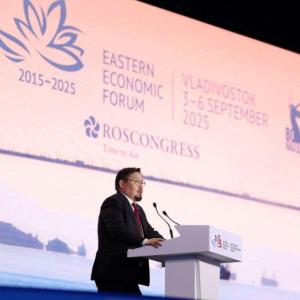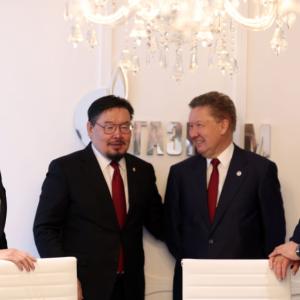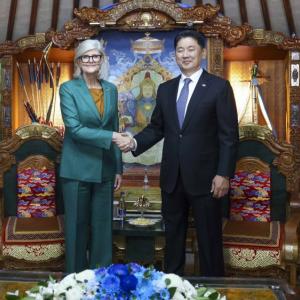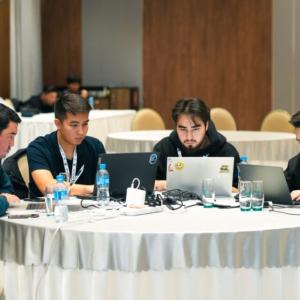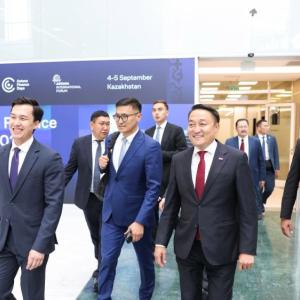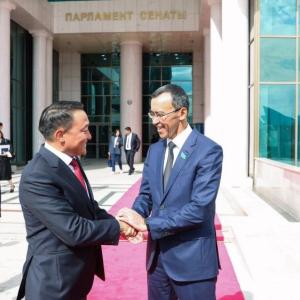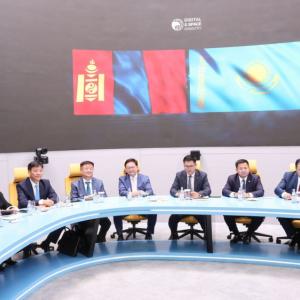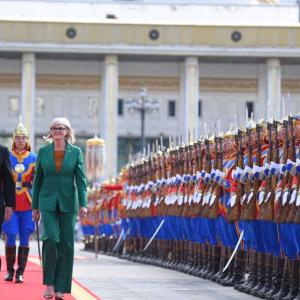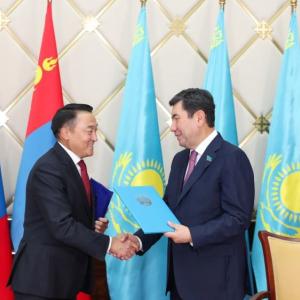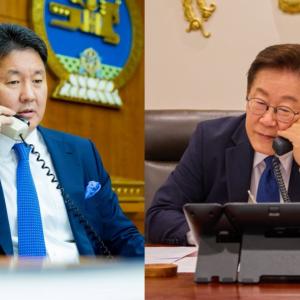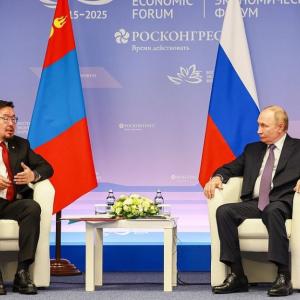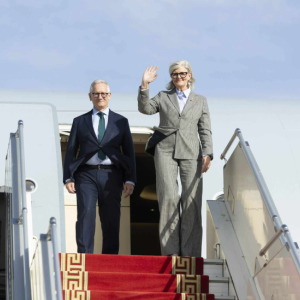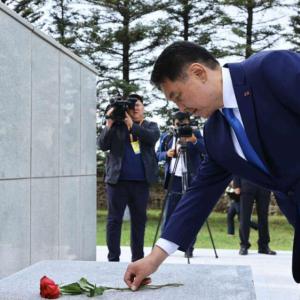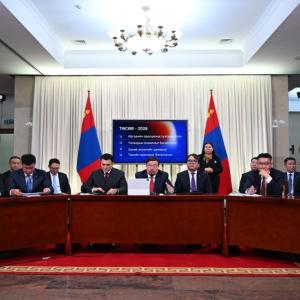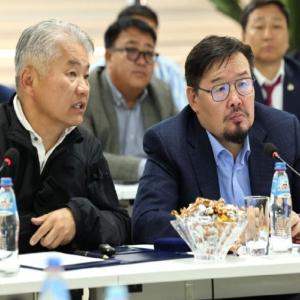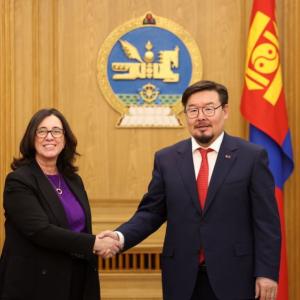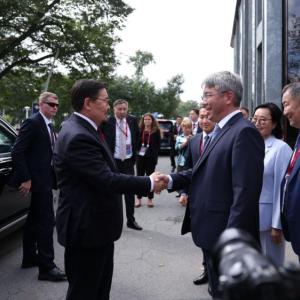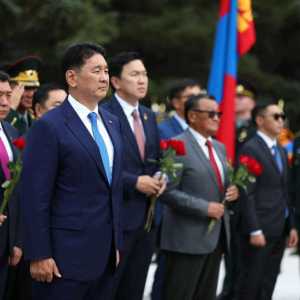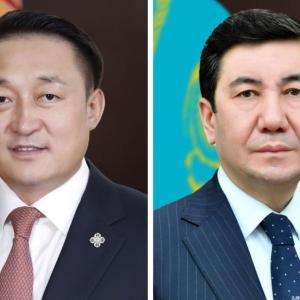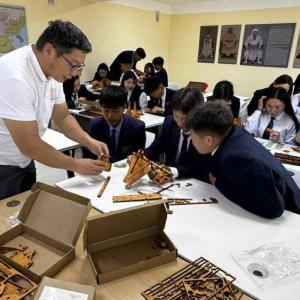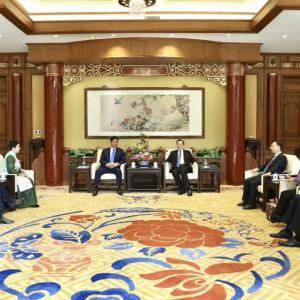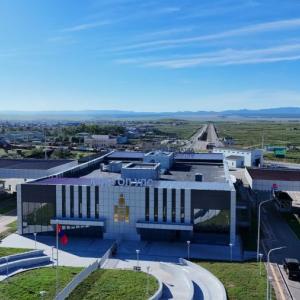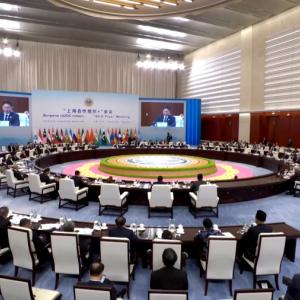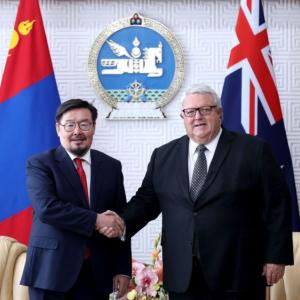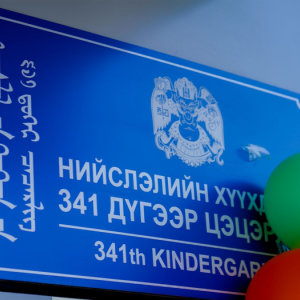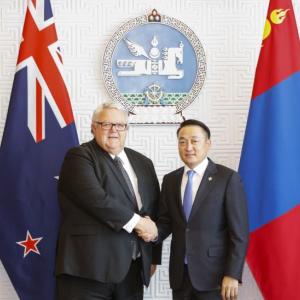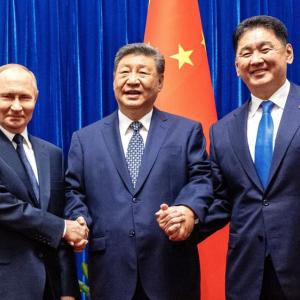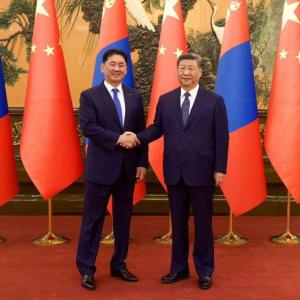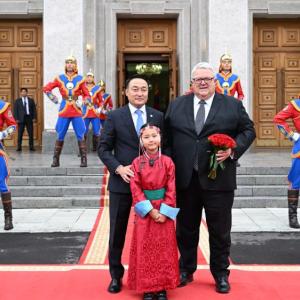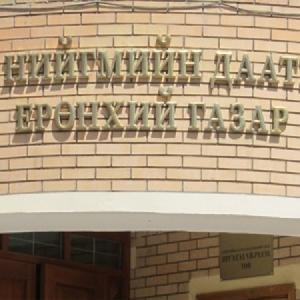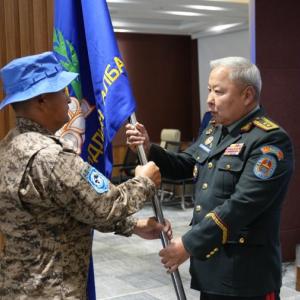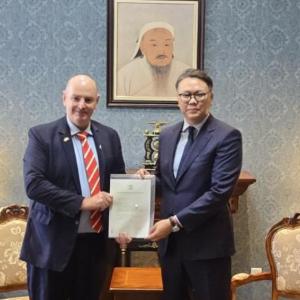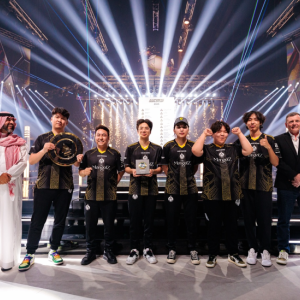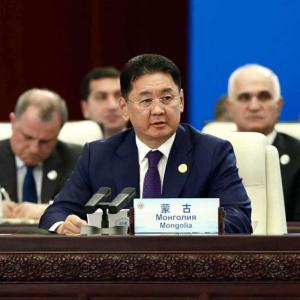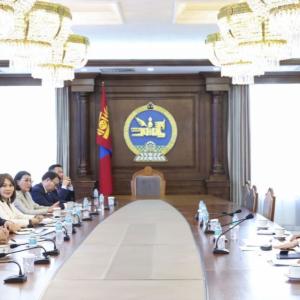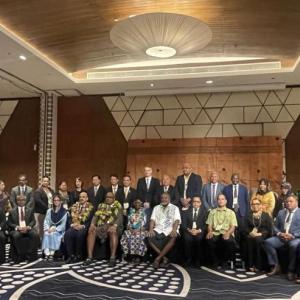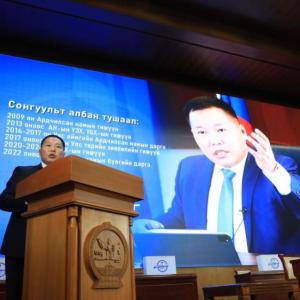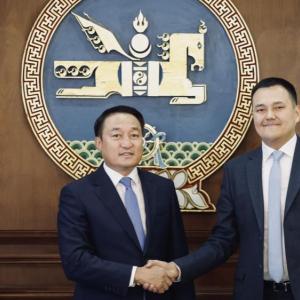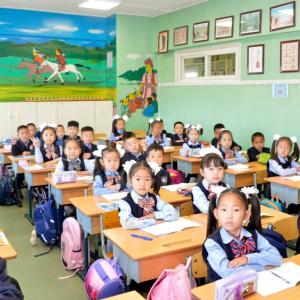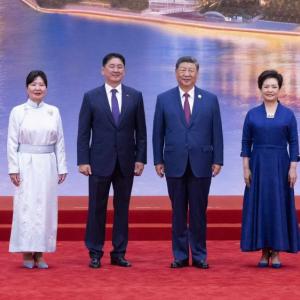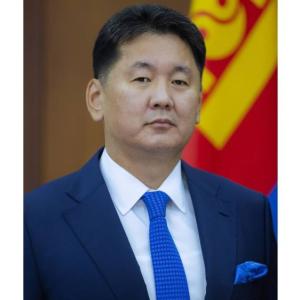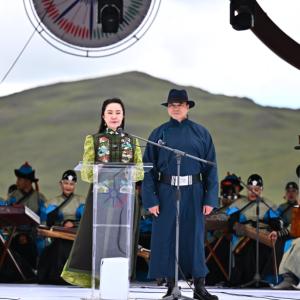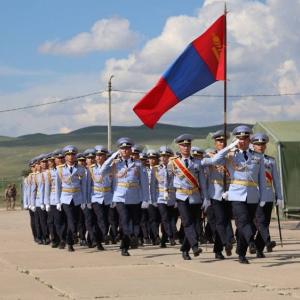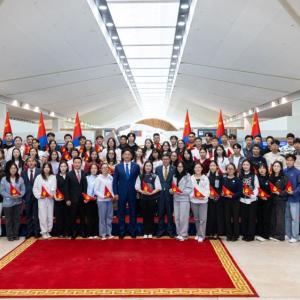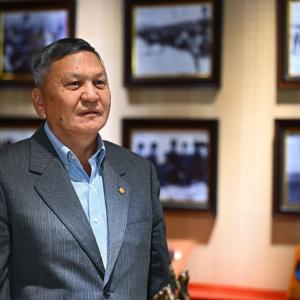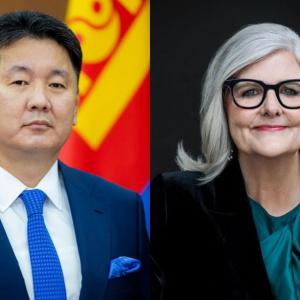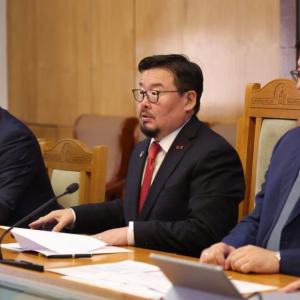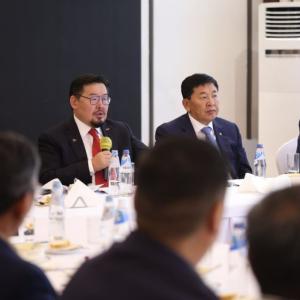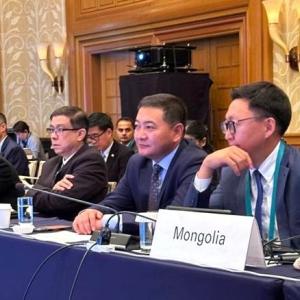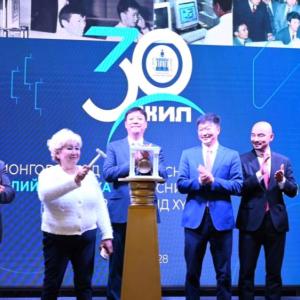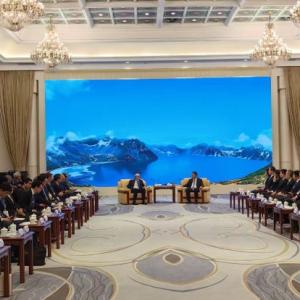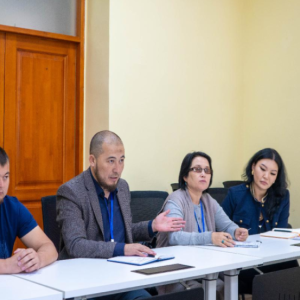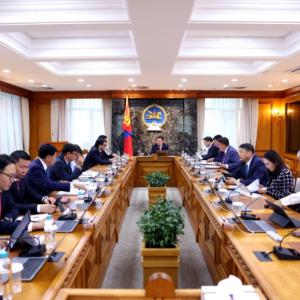Discussion on ‘Constitutional amendment and Mongolia’s Development Model’ held
Politics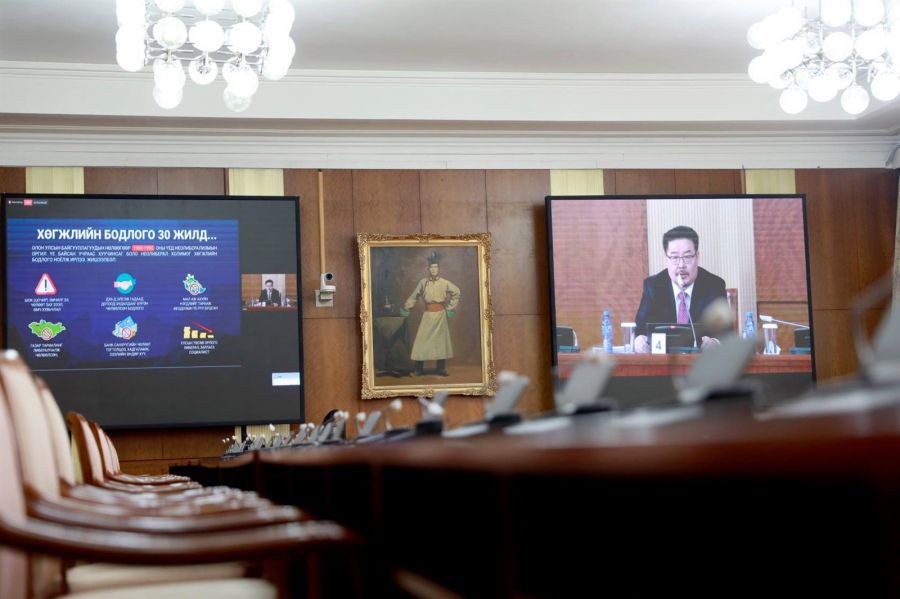
Ulaanbaatar /MONTSAME/. At the initiative of the Chairman of the State Great Hural, Mr.G.Zandanshatar, an online deliberative discussion on “Constitution Amendment Mongolia's Development Model” was held on April 14, 2021.
The attendees to the discussion included Member of Parliament, Minister of Education and Science, Mr. L.Enkh-Amgalan, Member of Parliament, Chairman of the Standing Committee on Education, Culture and Science Mr. G.Damdinnyam, Chief Representative at the JICA Mongolia Office Mrs.Tamura Eriko, Senior Specialist of Infrastructure and Private Sector at the JICA Mongolia Office Mr. Koizumi Taiga, Leading Specialist of the Institute of International Studies at the Academy of Science Dr. Prof. B.Serjav, President of the New Mongolia Academy Mr. J.Galbadrakh and Head of the Oyuntulkhuur Foundation Mrs. D.Oyuntulkhuur and others.
Chairman of the State Great Hural Mr. G.Zandanshatar opened the online discussion. “The parliament is working hard to implement the constitutional amendments. From the outset, following the constitutional amendments, major laws have been enacted to ensure judicial justice, independence, and local government independence. The revolutionary process of transforming Mongolian society continues successfully.The Mongolian Parliament is working on the goals of the “Three Revolutions”: Legal, Economic and Social Policy.”
He stressed that the social policy revolution, or reforms in the health and education sectors, is intensifying. “Also, in the context of the Economic Revolution, the reform of the Development Policy reflected in the amendments to the Constitution and the creation of the Mongolian model have become very important tasks. Therefore, we are organizing this deliberative discussion to listen to the opinions of professionals, academics and researchers on this topic.”
Minister of Education and Science Mr. L.Enkh-Amgalan said there is a social need to implement education reform without delay. The draft law on Education Package is expected to be submitted to the Chairman soon. The draft law then will be discussed at the spring session of the State Great Hural. He stressed that the adoption of this law will lay the foundation for the transition to a system of sustainable implementation of educational programs for at least 10 years.”
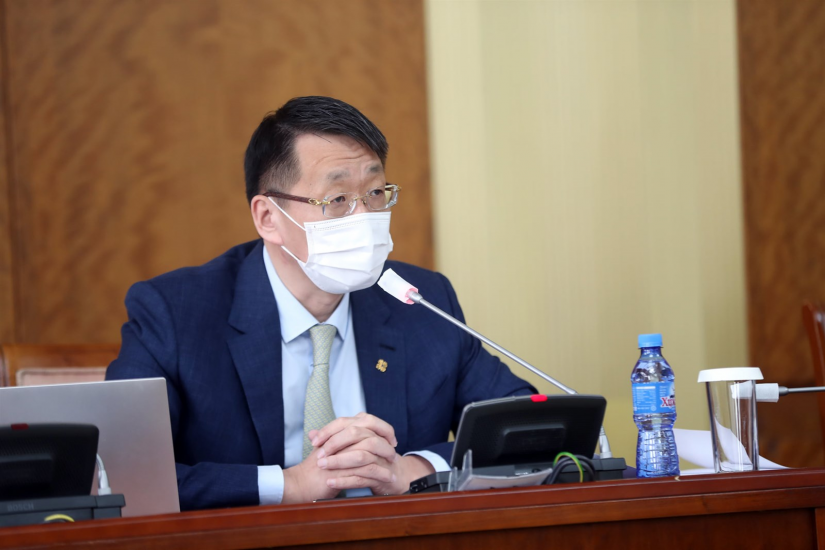
Participants at this discussion, organized as part of the "Develop Like Japan" initiative, shared their views on Japan's development model, experience, and opportunities for implementation in Mongolia.
The Chairman G.Zandanshatar presented a topic on “Constitutional Amendment and Mongolian Development Model”. During his presentation, he said that over the past 30 years, Mongolia's national production has collapsed, and the economy has become overly dependent on mining, copying and implementing many inconsistent policies and models. “There is no one-size-fits-all recipe for development of any country.”
He continued “Countries that succeed in implementing a unified policy and building a system shows that they have focused on tailored needs, resources, and circumstances of a nation. It is clear that copying everything that is good will not be successful if development policy is not implemented in a coherent, consistent, and planned manner. Disorder creates chaos. Therefore, it is necessary to implement systematic changes.” He introduced the successful development models of the countries, highlighted the good and bad experiences, highlighted the Japanese development model, and outlined the goals to be implemented by the State Great Hural in the field of development policy and planning in the near future.
Minister of Education and Science, Enkh-Amgalan, presented a topic on “Constitutional Amendments and Educational Development” and Mrs. Tamura Eriko, made a series of presentations on Japan's modern reforms. Dr.Prof. B.Serjav, presented a topic on “Learning from the Japanese experience in providing ethical education to students”.
Mrs. Tamura Eriko noted that Japan's primary and secondary education policy is based on the principle that educating children and educating them to be good person. “It is important to introduce this approach based on our culture and tradition and so that it will help future citizens to develop the right morals.”
“Since the establishment of the modern educational system in Japan, the "Ethics" curriculum has been consistently followed and integrated into the family, school and social environment.
Mr. J.Galbadrakh shared his experience of introducing a Japanese-style school in Mongolia. Mr. Koizumi Taiga gave a presentation on Japan's National Development Strategy and the “Comprehensive National Development Plan” project in Mongolia. The deliberative discussion ended with a presentation on “Introduction from an Educational Approach” by Mrs. Oyuntulkhuur, Director of the Oyuntulhuur Foundation.

Source: Press and Public Relations Department of the State Great Hural

 Ulaanbaatar
Ulaanbaatar
